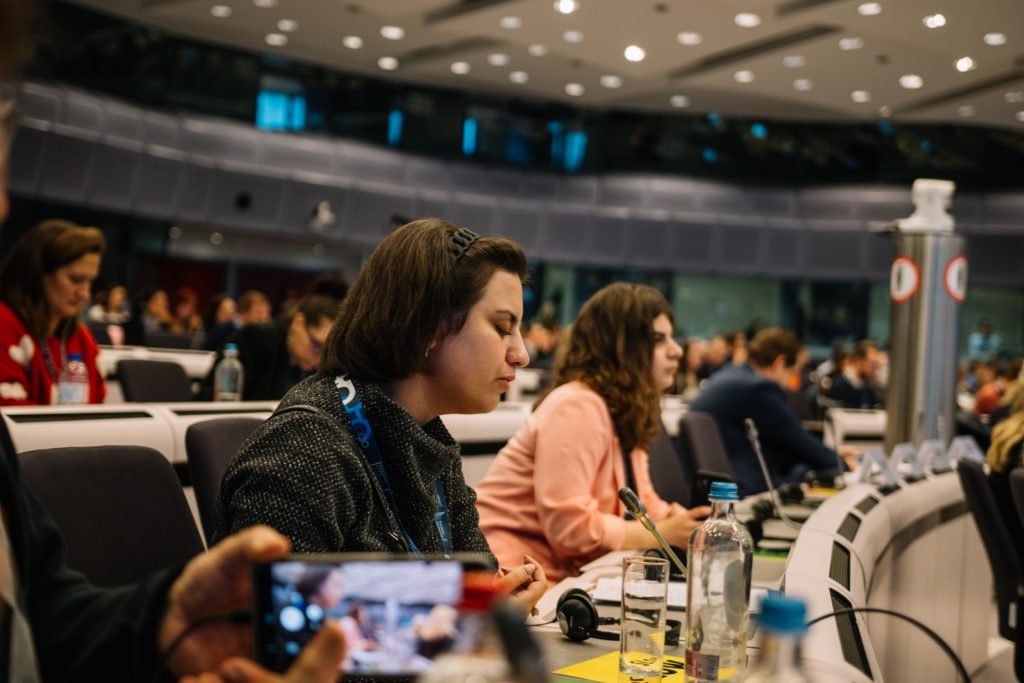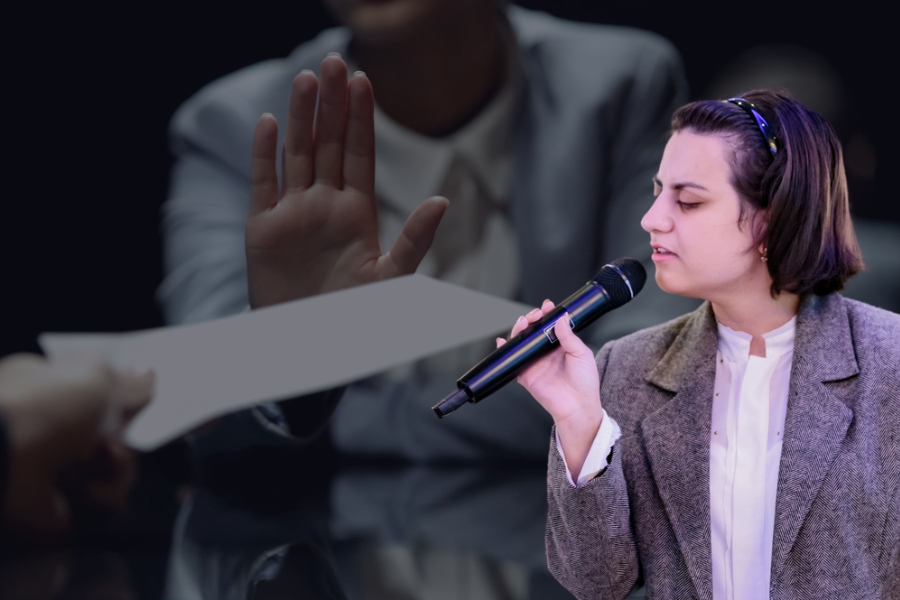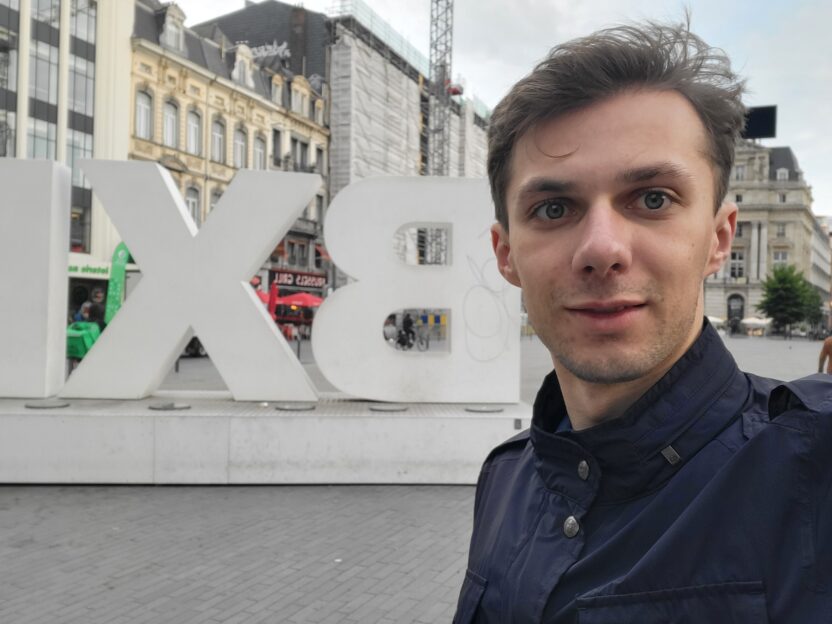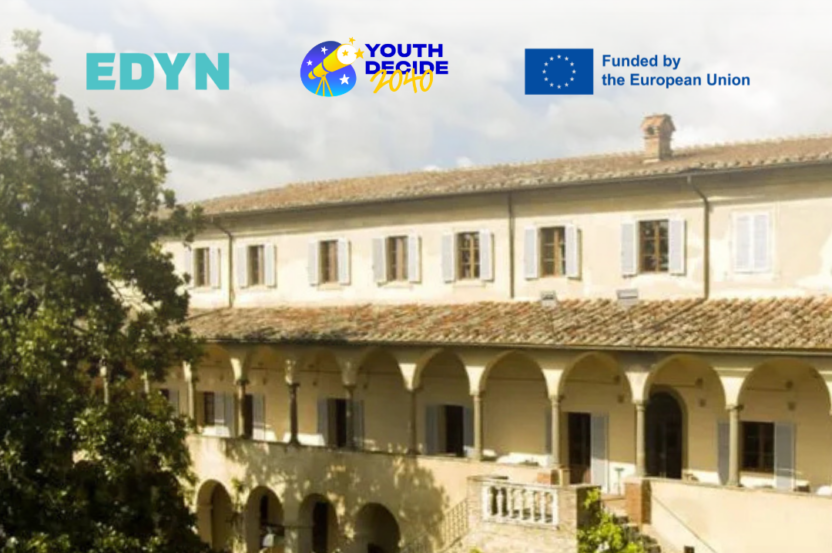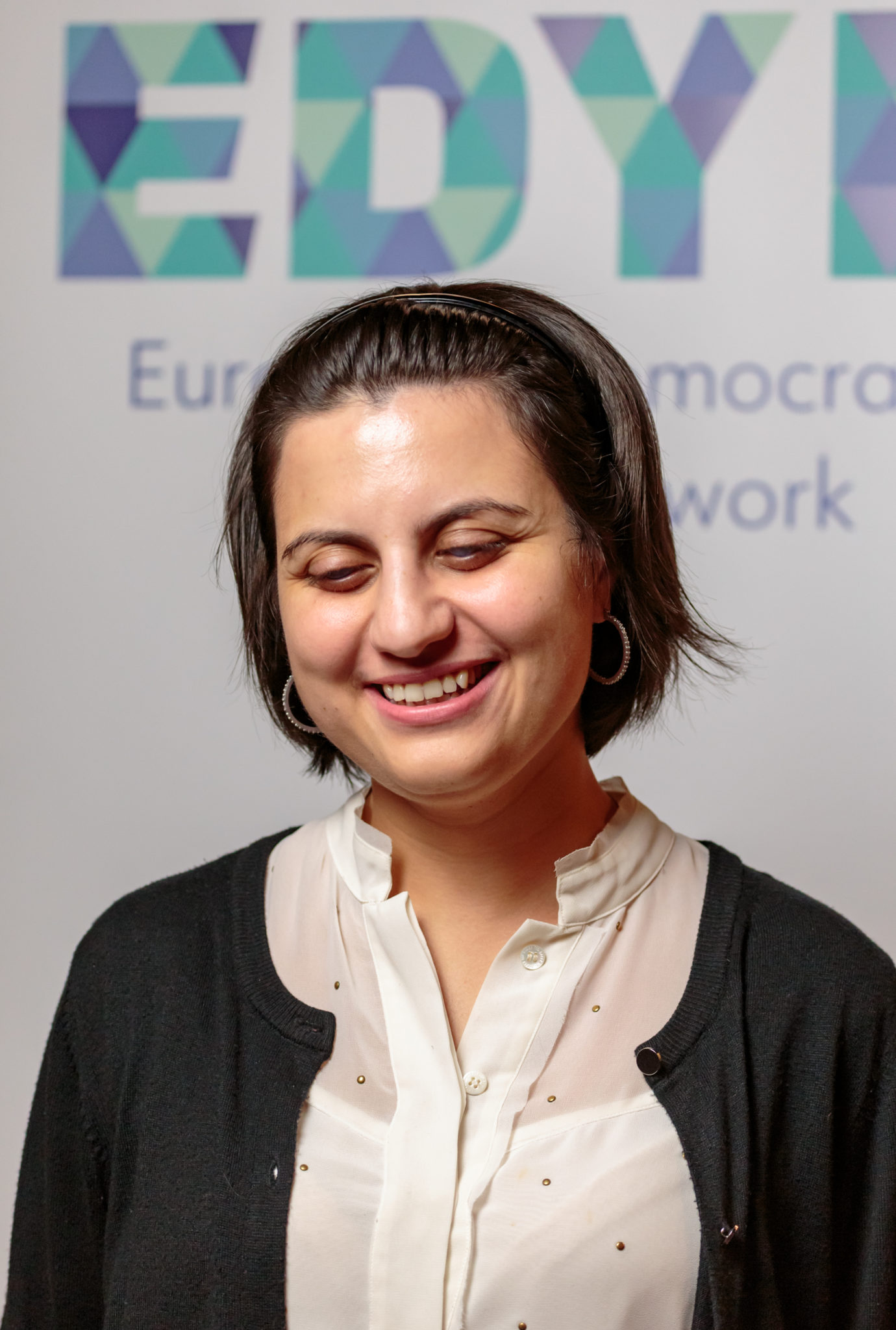The 1st episode of the Youth Lead Anti-corruption Talks series named “Inclusion and leadership of youth with disabilities to contribute to the achievement of SDG16″ took place virtually, on December the 9th 2022, and was dedicated to the Human Rights Week and the International Day of the Rights of Persons with Disabilities celebrated on December the 3rd. These talks are being organized by the Youth Lead Board of the UNODC’s GRACE initiative. Each of these talks is dedicated to a certain UN observance day and thus focuses on a given topic. For instance, the first edition was focused on disability inclusion and was prepared by Esma Gumberidze and Sylvain Obedi from the Youth Lead Board.
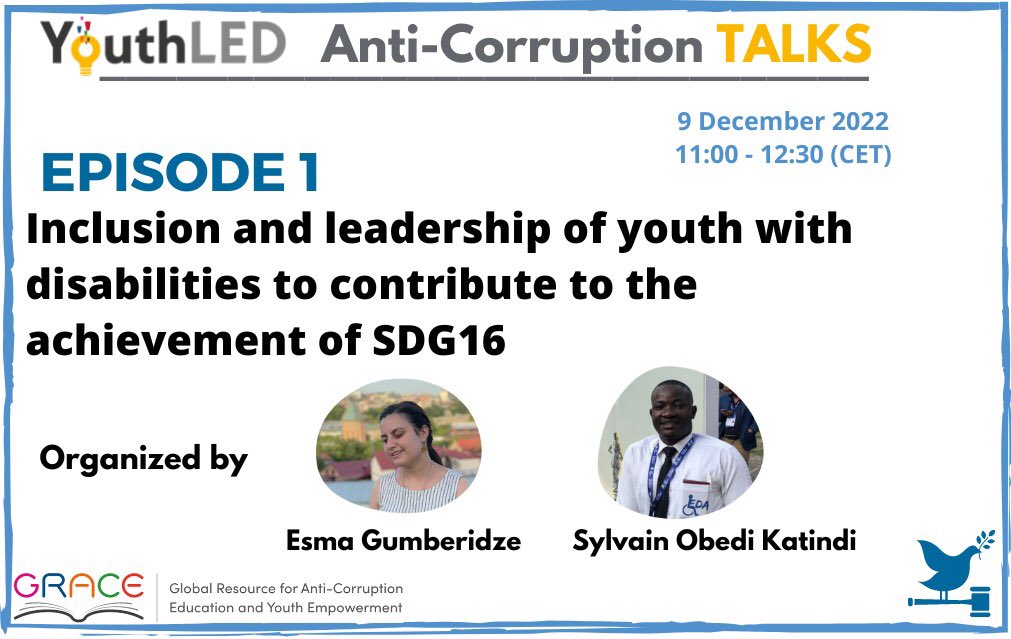
The speakers were George Akhmeteli an activist with disabilities, a chairperson of the Movement Accessible Environment for Everyone, and Claudia Carpanese, a diversity and inclusion partner from the UNODC Talent Development Team, who started her work at the UN as an intern in a pilot project aiming at hiring more persons with disabilities and Kirsty Rancier, UNODC’s Youth Focal Point. We decided to invite a speaker from civil society to promote the dialogue amongst the UN professionals and disability rights activists so that the perspectives of the latter are more integrated and reflected in the UN work. The audience was also diverse including the Youth Lead Board members, the UN staff as well as the general public, especially youth. We also had Matthew Jenkins from Transparency International attending the event. He shared useful comments and reports on disability and corruption. For instance, a study from Mongolia on persons with disabilities showed 67% of those surveyed thought that those with disabilities suffer more from corruption than persons without disabilities. Without sufficient data on persons with disabilities, it is extremely difficult to challenge the discrimination they face. According to one estimate in the 2020 Sustainable Development Goals Report, data from 31 countries collected between 2014 and 2019 suggests that 30% of people with disabilities experienced discrimination in this period, with even higher levels reported by women with disabilities.
George spoke extensively on the issue of the informality of decision-making when it comes to disability. Most of the time, especially in developing countries, the decisions regarding disability inclusion, rights and services, funding, and assistive devices are being made behind closed doors between government officials and just a few influential players in the disability field, not many of whom are persons with disabilities themselves, while many of them provide services using the state funds. These decisions often become known to the wider disability community only after being made. This lack of transparency and accountability provides good soil for corruption. Many times those working on disability issues are being taught and encouraged to use the informal methods of advocacy, which is particularly harmful in countries in transition, which are already prone to trade-in influence, nepotism, and other forms of corruption. George further discussed, how the disability sphere is more prone to corruption. First of all persons with disabilities feel even less empowered to stand up against it, as they have fewer choices, information, and resources to voice their concerns and often depend more on those, involved in corrupt activities than the general public. (often those committing corruption are their soul care-giving institutions, that provide assistive devices or services). In addition, disability is stigmatized. Persons with disabilities are infantilized, as well as those working for them, are often perceived as “better people”, of higher moral standing. Thus it is often unimaginable for the outside public that persons with disabilities, their family members and professionals working with them can be moved by greed and other motivators for corrupt behavior.
Besides corruption, general disability inclusion was discussed as well. Claudia and Kirsty from the UNODC spoke about the need for greater awareness of disability-specific issues, the ways to provide reasonable accommodation, and universal design. The United Nations Disability Inclusion Strategy was launched in 2019. Human Resources is working on two indicators: employment and capacity development for staff. Focusing on entity-wide learning and capacity training for personnel. Training first is important to raise awareness and open conversations on why it is important to have people with disabilities at the Office, how the office can include them and accommodate different needs, and how to strengthen policies. Human Resources is currently working on strengthening its internship program to attract more people with disabilities and include more experiences. Both the resources and commitment from the managerial level are crucial to advance inclusion. A cultural change is required, and as it was with gender at the time, implementing the Disability Strategy is a process that requires starting with raising awareness. Policies on reasonable accommodation are almost done, and implementation should start next year. UNICEF, for example, already has these policies and provides reasonable accommodation for job candidates and personnel with disabilities. Currently, flexible working arrangements are in place to help parents with children with disabilities. However insecure job environments – which are common for young people – do not favor inclusion. It is challenging to take a position if it is a short contract or the health insurance does not cover certain medicines, for example. No disaggregated data on people with disabilities working at UNOV/UNODC is currently available. But including questions on disability in staff surveys could help to obtain it and then target events and training based on that information.
It is important to make sure that disability inclusion is integrated into the Office’s work, even in programs and aspects that are not explicitly related to disability. there is much room for improvement. To leave no one behind, it is crucial to include women, children, and youths with visible and invisible disabilities from the beginning and at all stages of the projects and programs with intersectionality being taken into account. There is a Disability Marker to track performance and funding. Some accommodations for persons with disabilities are provided at larger events. For instance, sign language interpretation and other CART services are available at the ECOSOC Youth Forum, where thousands of young people participate. However smaller events are often less accessible. A vicious circle is created: inaccessibility discourages persons with disabilities from attempting to attend, which, in turn, deprives the organizers of the incentive to make them more accessible. The lack of funds also may hinder the accessibility of an event. Teams, PowerPoint, and other apps have accessibility tools, and it is important to use them. Similar when updating websites.
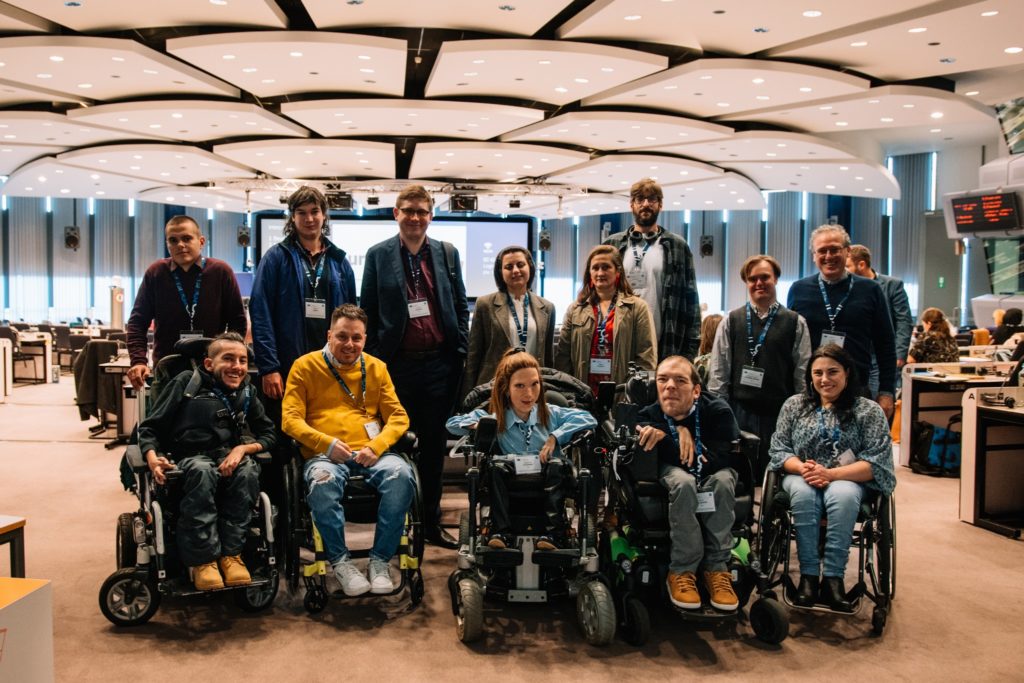
The media shall portray persons with disabilities as agents of change, not as either heroes or objects of charity. Strategic litigation, and more court cases may help in promoting the rights of persons with disabilities as well.
As the discussion on disability, especially in the corruption prism has so far been rare, we hope, the discussion held on December the 9th of last year under the species of UNODC and Youth Lead Board would be expanded with this article even beyond the international day of persons with disabilities.
